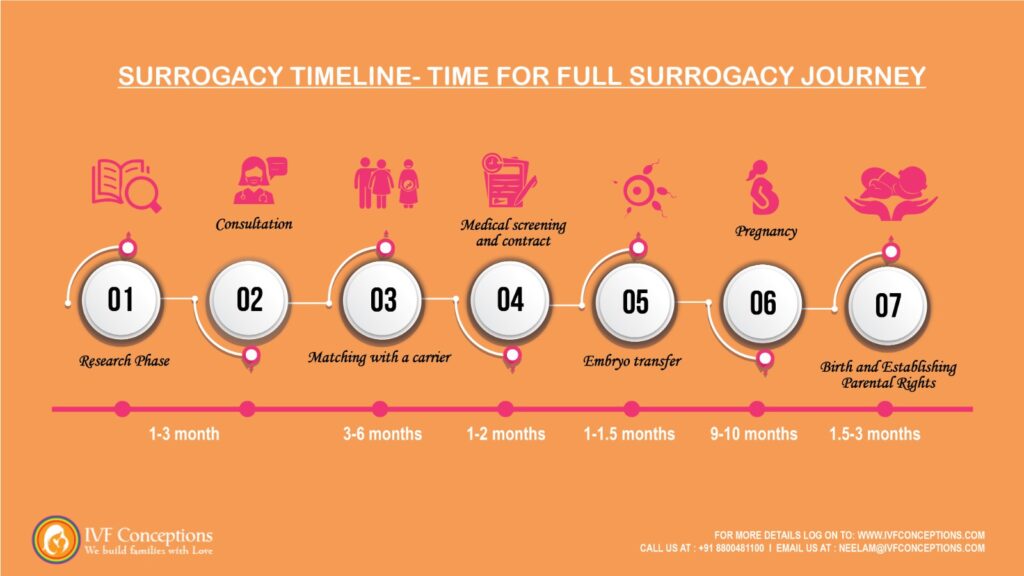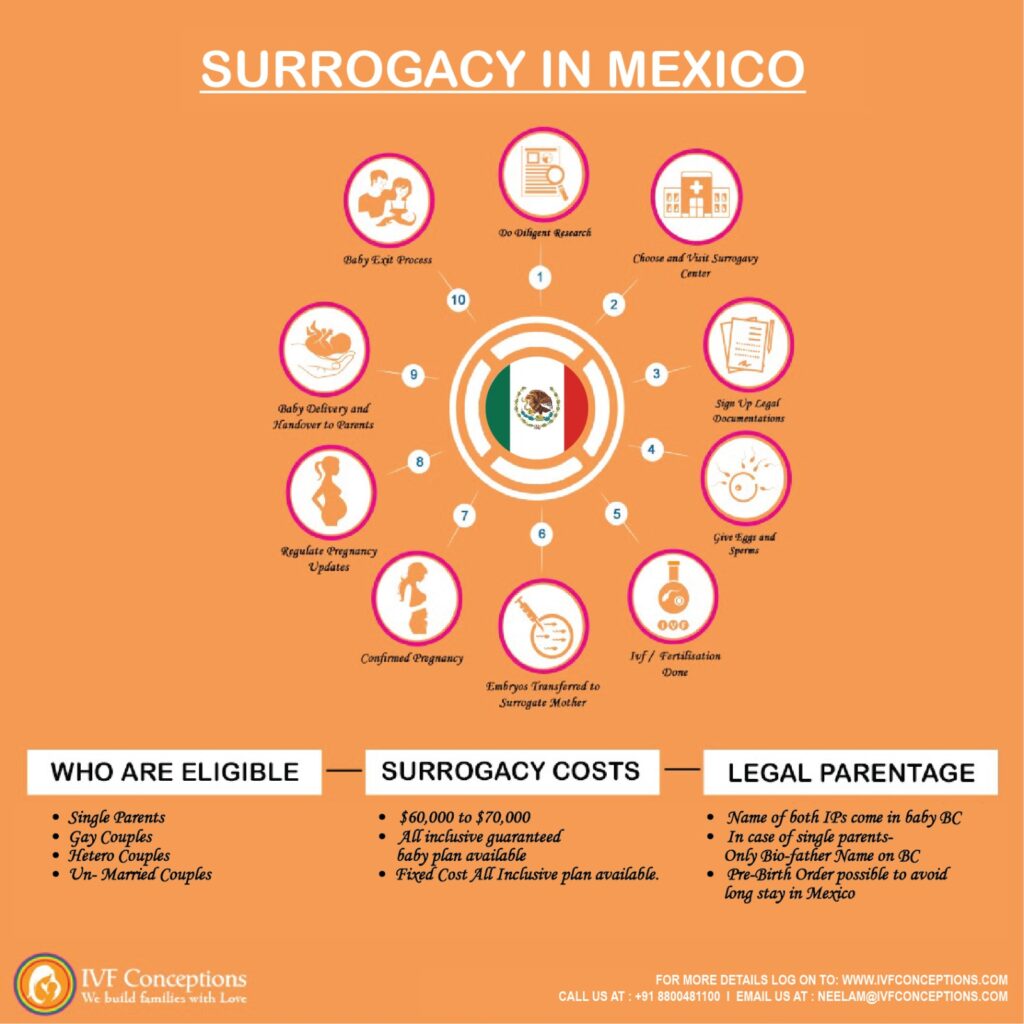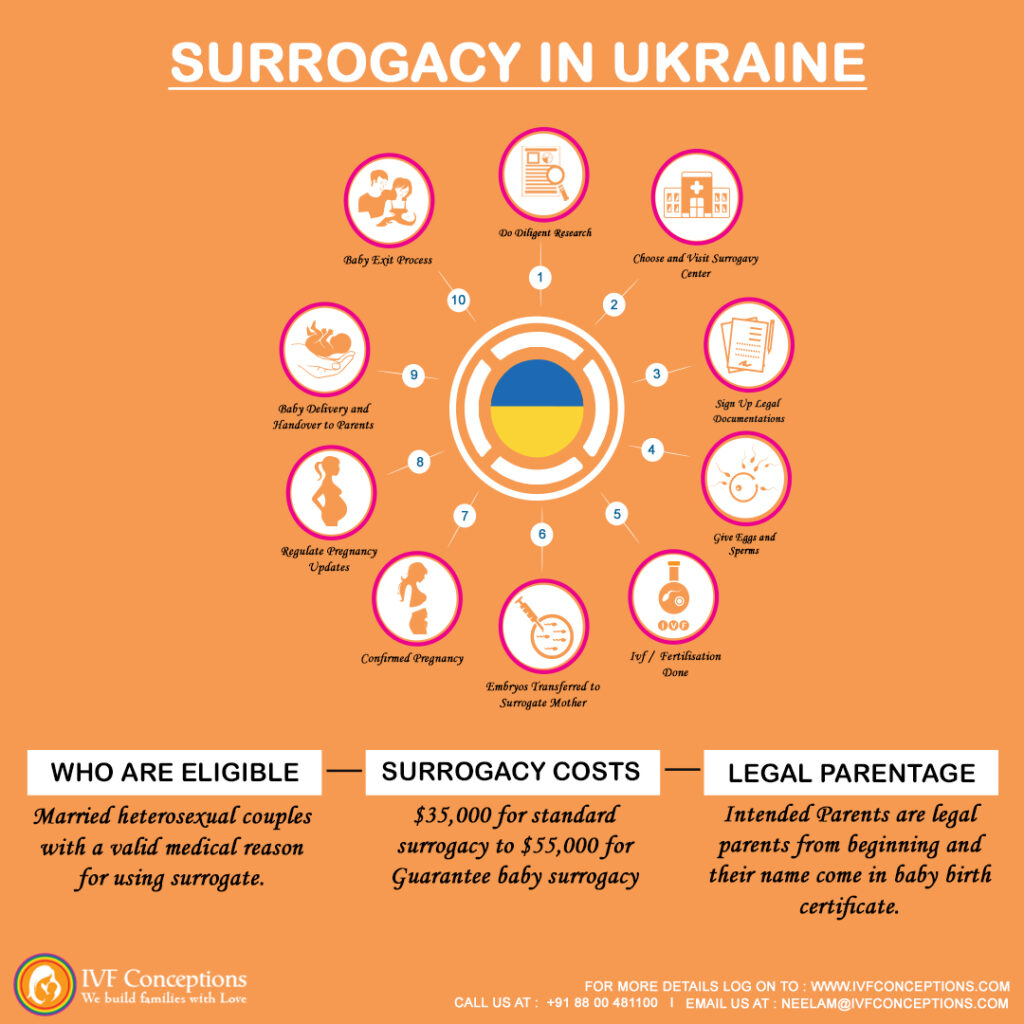Surrogacy in Massachusetts: A Comprehensive Guide

Gestational Surrogacy in Massachusetts is a widely accepted and legally supported process, making the state an attractive destination for intended parents and surrogates. While Massachusetts does not have state-created surrogacy laws, the legal framework is shaped by landmark court cases such as Hodas v. Morin (2004), Culliton v. Beth Israel Deaconess Medical Center (2002), and R.R. v. M.H. (1998).
Massachusetts allows pre-birth orders for gestational surrogacy, ensuring that intended parents’ rights are protected regardless of marital status or genetic ties. However, traditional surrogacy contracts face legal challenges, as Massachusetts courts do not always enforce parental rights in such cases.
Get in touch for a Free Surrogacy Consultancy:
📲 91-8800481100 ( WhatsApp, Line, Viber)
For a smooth surrogacy process, working with a Massachusetts surrogacy attorney is essential. They will guide you through obtaining legal parentage and ensure that the surrogacy agreement meets all legal requirements.
Additional guide for intended parents:
Key Takeaways
- Surrogacy is legal in Massachusetts, though specific laws are limited.
- Becoming a surrogate requires meeting specific criteria, including a healthy birthing history.
- Gestational surrogacy is a common approach, with reproductive health playing a vital role.
- Egg donation may be part of the surrogacy process, with careful consideration in the selection process.
- Understanding surrogacy costs is essential for planning and financial preparedness.
Gestational Surrogacy In Massachusetts- An Overview
Massachusetts does not have surrogacy statutes but has court approval in cases like Hodas v. Morin, Culliton v. Beth Israel Deaconess Medical Center, and R.R. v. M.H.
The legality of compensation in surrogacy agreements is not addressed by Massachusetts’s case law. Surrogates can receive a base salary for their services.
The traditional surrogacy process is viewed as an adoption under state law, despite the lack of prohibition in Massachusetts regulations.
Traditional surrogates cannot relinquish their rights until four days post-birth, despite immediate placement with intended parents. Both intended parents must complete a full adoption if the child’s father is unrelated. Surrogacy agreements in Massachusetts are difficult to enforce legally. A 1998 case law states that standard surrogacy contracts, including compensation, are unenforceable.
Other case laws do not address the enforceability of gestational surrogacy contracts. A Massachusetts surrogate mother has a four-day waiting period after the baby is born before she can renounce parental rights.
In Massachusetts, a surrogacy procedure costs between $100,000 and $125,000. This includes the agency fee, the surrogate psychiatric exam, the surrogate legal consultation, the escrow management fee, and the surrogate compensation package.

Is Surrogacy Legal in Massachusetts?
Yes, Massachusetts is a surrogacy-friendly state. While there are no specific surrogacy statutes, the state has a long history of recognizing and enforcing gestational surrogacy agreements. Pre-birth orders are available for intended parents, allowing them to secure legal rights before the child’s birth.
Massachusetts also supports surrogacy for all intended parent types, including married couples, single individuals, and LGBTQ+ couples.
Why Choose Massachusetts for Surrogacy?
Massachusetts stands out for its favorable surrogacy environment. Intended parents benefit from:
- Progressive Laws: Pre-birth orders and strong legal precedents provide security for intended parents.
- World-Class Medical Facilities: Renowned fertility clinics ensure high success rates for IVF and surrogacy.
- Inclusivity: Surrogacy in Massachusetts is accessible to all intended parent types, including LGBTQ+ couples and single individuals.
- Professional Support: Massachusetts has many experienced agencies, attorneys, and surrogates who can guide you through the process.
Surrogacy Laws In Massachusetts
Massachusetts’ surrogacy regulations form the foundation of a secure and open system. The state recognizes and approves agreements when a gestational surrogate is not genetically related to the child. These rules protect the interests of all parties, ensuring a smooth transition to motherhood.
Navigating the legal intricacies of surrogacy is crucial. Massachusetts has no specific laws prohibiting surrogacy, making it a favorable state for those considering this path to parenthood. Certain legal processes must be followed.
Surrogacy Laws in Massachusetts
While there are no laws expressly prohibiting surrogacy, the state lacks a comprehensive legal framework regulating the process. This absence of specific legislation means that surrogacy is generally permitted but requires careful consideration of legal aspects.
● According to case law, gestational surrogacy is legal in Massachusetts. Traditional surrogacy contracts are typically not enforceable in Massachusetts.
● According to Massachusetts law (M.G.L.A. 215, Section 6), intending parents may get pre-birth parentage orders from the court. As long as the pair is married, Massachusetts courts will give pre-birth parentage orders to both opposite-sex and same-sex couples.
● Any child born to a married woman as a result of artificial insemination with her husband’s agreement is regarded to be their legitimate child according to Massachusetts law (Mass. G.L. c. 46 4B).
● A stepparent may adopt their spouse’s child in accordance with Massachusetts state law (M.G.L.A. 210 2A). Both spouses of the same and opposite sexes are covered by the law. Adoption in Massachusetts is not restricted to married couples.
Having a legal team with Massachusetts surrogacy law expertise is essential. Find a Massachusetts surrogacy attorney who not only has experience in the field of surrogacy law but is also aware of your particular requirements and worries. IVF Conceptions can put you in touch with respectable Massachusetts surrogacy lawyers who put your needs first.
How Much Does Surrogacy Cost in Massachusetts?
The cost of surrogacy in Massachusetts is between %110,000 to $150,000. Several variables can affect the cost of surrogacy in Massachusetts. The type of surrogacy agreement is one of the variables that can affect the price.
Surrogacy Costs in Massachusetts
Massachusetts is a popular state for surrogacy, thanks to its surrogacy-friendly laws and access to world-class medical facilities. However, understanding the surrogacy cost in Massachusetts is essential for planning your journey.
On average, the cost of surrogacy in Massachusetts ranges between $100,000 and $175,000, depending on factors such as surrogate compensation, medical treatments, and legal services.
This guide provides a detailed breakdown of the surrogate cost in Massachusetts, factors influencing these costs, and ways to manage expenses effectively.

Breakdown of Surrogacy Costs in Massachusetts
Here’s a typical cost structure for surrogacy in Massachusetts:
- Agency Fees: Surrogacy agencies in Massachusetts charge $15,000 to $35,000 for services such as surrogate matching, coordination, and support throughout the process.
- Surrogate Compensation: Surrogates in Massachusetts typically receive $45,000 to $65,000, with additional allowances for expenses like maternity clothing and travel.
- Medical Expenses: IVF treatments, embryo transfers, and prenatal care range from $30,000 to $55,000 depending on the clinic and the number of attempts.
- Legal Fees: Contracts, securing parental rights, and navigating Massachusetts’ surrogacy laws cost between $10,000 and $20,000.
- Miscellaneous Costs: These include travel expenses, surrogate insurance, and other unforeseen costs, totaling $10,000 to $15,000.
Detailed Cost Breakdown
Here’s a table summarizing the cost of surrogacy in Massachusetts:
| Cost Component | Estimated Range (USD) |
| Agency Fees | $15,000 – $35,000 |
| Surrogate Compensation | $45,000 – $65,000 |
| Medical Costs | $30,000 – $55,000 |
| Legal Fees | $10,000 – $20,000 |
| Miscellaneous Expenses | $10,000 – $15,000 |
| Total Estimated Cost | $100,000 – $175,000 |
Factors Influencing Surrogacy Costs in Massachusetts
Several factors affect the cost of surrogacy in Massachusetts:
- Surrogate Experience: Experienced surrogates may charge higher compensation than first-time surrogates.
- Health Insurance: If the surrogate’s health insurance excludes surrogacy-related pregnancy, intended parents may need to purchase a separate policy.
- Number of IVF Attempts: Multiple IVF cycles or embryo transfers can increase medical expenses.
- Legal Complexity: Additional legal steps for international or same-sex intended parents may add to the overall costs.
- Agency Services: Full-service agencies typically charge more but offer comprehensive support to simplify the process.
Tips for Managing Surrogacy Costs in Massachusetts
The surrogate cost in Massachusetts can be significant, but careful planning can help reduce expenses. Here are some strategies:
- Work with Local Professionals: Using a Massachusetts-based surrogate and agency can minimize travel-related expenses.
- Use Frozen Embryos: If you already have frozen embryos, you can save on egg retrieval and fertilization costs.
- Choose an Experienced Agency: Partnering with a reputable agency helps avoid costly mistakes or delays.
- Research Insurance Options: Ensure the surrogate has a health insurance plan that covers maternity care or secure supplemental insurance.
Here’s a table highlighting cost-saving strategies:
| Cost-Saving Strategy | Potential Savings (USD) |
| Choosing a local surrogate | $5,000 – $10,000 |
| Using frozen embryos | $8,000 – $12,000 |
| Selecting an experienced agency | $5,000 – $10,000 |
| Securing comprehensive insurance | $10,000 – $20,000 |
The surrogacy Price in Massachusetts ranges between $100,000 and $175,000, influenced by surrogate compensation, medical treatments, legal fees, and agency services. By partnering with experienced professionals and planning carefully, intended parents can navigate the process effectively.
Gestational Surrogacy Process In Massachusetts For Intended Parents
In Massachusetts, surrogacy laws safeguard the rights of intended parents by granting them legal custody before birth. This assurance provides peace of mind during the surrogacy journey.
Massachusetts allows prospective parents to obtain pre-birth orders, streamlining the legal process. These orders establish paternity before birth, facilitating the transfer of legal rights post-delivery.
Couples and individuals in Massachusetts facing infertility have the option of surrogacy. This choice is available to people of all ages, sexual orientations, and backgrounds.
➔ Massachusetts intended parents who use surrogacy include
➔ Heterosexual couples with infertility
➔ Those unable to conceive naturally
➔ Individuals avoiding genetic or medical issues
➔ LGBTQ+ parents seeking genetic connection
Every surrogacy journey is unique and personal.

Becoming a Surrogate in Massachusetts
Considering surrogacy in Massachusetts? It involves legal and medical processes.
Here’s what you need to know:
Surrogate Requirements
To become a surrogate, specific criteria must be met. Typically, a surrogate must:
- Have previously given birth without complications.
- Be in good physical and mental health.
- Have a stable living situation.
Surrogacy Process In Massachusetts for Intended Parents.
If you’re considering surrogacy in Massachusetts, speak with a specialist. They can provide more information.
The surrogacy process takes 18 months to 24 months depending upon the individual circumstances
Outlines the surrogacy process timeline for intended parents:
| Stage | Description of Stage | Duration |
| Research Phase | Explore family building options and decide on surrogacy. | Personal timeframe |
| Consultation and Application | Choose a surrogacy agency, sign agreement, and start embryo creation (if needed). | 1-3 Months |
| Matching | Agency finds and presents potential gestational carriers. Meet and decide on a match. | 3-6 Months |
| Medical Screening and Contracts | Carrier undergoes medical and psychological screening. Sign surrogacy contract. | 1-2 Months |
| Embryo Transfer | Prepare for embryo transfer. Success may take multiple attempts. | 1-1.5 Months |
| Pregnancy | Gestational carrier’s pregnancy, approximately 40 weeks. | 9-10 Months |
| Birth and Postpartum | Baby’s birth, establish parental rights, and postpartum period. | 1.5-3 Months |
Every surrogacy experience is unique. In Maryland, there are common steps:
STEP 1: CHOOSE IF SURROGACY IN MARYLAND IS RIGHT OPTION FOR YOU.
STEP 2: WITH YOUR CHOSEN SURROGACY PROFESSIONAL, FORM A SURROGACY PLAN
STEP 3: COMPLETE THE PRE-SURROGACY SCREENING
STEP 4: FIND THE RIGHT SURROGATE FOR YOUR SURROGACY PROCEDURE
STEP 5: MAKE A SURROGACY AGREEMENT
STEP 6: COMPLETE THE MEDICAL PROCESS AND EMBRYO TRANSFER
STEP 7: WELCOME YOUR BABY AND COMPLETE THE PROCESS OF SURROGACY IN MARYLAND.

Find Surrogate Mother In Massachusetts
Surrogacy Agencies: Organizations focus on matching surrogate moms with intended parents. They handle the logistical, medical, and legal aspects of surrogacy.
Online Surrogacy Communities: Online platforms allow interactions between prospective surrogates and intended parents. Caution is advised due to potential risks, and legal counsel is recommended.
Fertility Clinics: Many fertility clinics offer surrogacy programs or recommend trusted organizations or experts.
Personal Networks: Some find surrogates through friends or relatives. This is often referred to as altruistic or compassionate surrogacy.
Top Affordable Surrogacy Destinations- Cheapest Countries for Surrogacy
Below is a look at some of the most cost-effective international surrogacy destinations, including their processes, costs, legal frameworks, and eligibility criteria.
1. Surrogacy in Mexico
- Process: Surrogacy is largely unregulated except in certain states like Tabasco. Surrogacy arrangements are conducted through private agreements with clinics.
- Cost: $60,000–$80,000
- Legal Framework: Only available for heterosexual married couples or single parents in certain states.
- Eligibility: Requires legal contracts; intended parents must work with experienced lawyers to ensure enforceability.

2. Surrogacy in Colombia
- Process: Altruistic surrogacy is allowed, with a focus on legally binding contracts. IVF treatments are accessible at reasonable rates.
- Cost: $60,000–$70,000
- Legal Framework: Open to heterosexual couples and single parents.
- Eligibility: No citizenship requirements; contracts must be reviewed to ensure compliance with Colombian law.
3. Surrogacy in Georgia (country)
- Process: Georgia has well-established surrogacy laws, and agreements are legally binding.
- Cost: $50,000–$70,000
- Legal Framework: Available only to heterosexual married couples. Parental rights are granted exclusively to the intended parents.
- Eligibility: Requires marriage certificates with at least one year of partnership.
4. Surrogacy in Ukraine
- Process: One of the most popular destinations before the geopolitical crisis, offering transparent processes and strong legal protections.
- Cost: $50,000–$70,000
- Legal Framework: Only heterosexual married couples are allowed. Surrogates have no parental rights.
- Eligibility: Only married hetero couples with proof of medical need are required.

5. Surrogacy in Armenia
- Process: Armenia’s surrogacy laws provide legal certainty, making it a growing destination for intended parents.
- Cost: $50,000–$70,000
- Legal Framework: Open to heterosexual married couples.
- Eligibility: Requires couple to be married hetero and age limit for female partner is 53.
6. Surrogacy in Argentina
- Process: Altruistic surrogacy is practiced, but contracts are not legally enforceable. Families work closely with surrogates and clinics.
- Cost: $50,000–$70,000
- Legal Framework: No specific laws on surrogacy, but recognized through family law. Open to all family types, including LGBTQ+ couples.
- Eligibility: Collaboration with legal experts is crucial to navigating the informal framework.
7. Surrogacy in India
- Process: India recently reopened surrogacy to Indian citizens only, with a focus on altruistic arrangements.
- Cost: $25,000–$40,000
- Legal Framework: Available only to heterosexual married Indian couples/ Surrogacy in India for NRI and Surrogacy in India for OCI is possible if thy fulfill all other conditios; commercial surrogacy is banned.
- Eligibility: Couples with citizenship of India/ NRI/ OCI card holder and medical need documentation are mandatory.
Comparative Table: Surrogacy Costs in the USA and Surrogacy Abroad Countries
| Country | Cost Range | Legal Framework | Eligibility Criteria | Key Feature |
| USA | $120,000–$200,000 | Fully regulated, binding | Open to all family types | High-quality medical and legal services |
| Mexico | $60,000–$80,000 | Semi-regulated, binding in parts | Heterosexual married couples, singles | Lower costs and proximity for Americans |
| Colombia | $50,000–$70,000 | Binding legal contracts | Open to heterosexual couples, singles | Affordable and accessible IVF treatments |
| Georgia | $40,000–$60,000 | Strict legal framework | Heterosexual married couples | Strong legal protection |
| Ukraine | $40,000–$70,000 | Strict legal framework | Heterosexual married couples | Transparent and reliable processes |
| Armenia | $50,000–$70,000 | Strong legal protections | Heterosexual married couples | Growing popularity with legal certainty |
| Argentina | $40,000–$60,000 | Informal, family law-based | Open to all family types | LGBTQ+ friendly with affordable options |
| India | $25,000–$40,000 | Strict, altruistic only | Indian citizens only | Most affordable option for eligible parents |
Looking for Best Surrogacy clinic / Surrogacy agency abroad?
We are here to help with more than 15 years of experience in offering safe, reliable, and affordable surrogacy options globally.
We analyze your needs, budget planning, egg donor availability, and destination preferences with the legal framework and find top surrogacy countries and agencies for you!
Our consulting services are free of cost and do not affect your costs in any way but help you to save tons of research time and money.
Additional guide for intended parents:
Gestational Surrogacy in Indiana
Gestational Surrogacy In Illinois
Gestational Surrogacy In Wisconsin
Conclusion
In conclusion, surrogacy in Massachusetts provides a supportive legal framework for surrogacy, focusing on gestational surrogacy. The state allows pre-birth orders, granting intended parents rights before birth. It also permits surrogacy agreements, covering legal aspects for married or unmarried couples, including same-sex couples.
Every surrogacy journey is unique, and seeking professional guidance is key to a successful experience
Our Complete Surrogacy Consulting Services /Case Management cover a wide range of services globally, including:
✓ Guide and Support to choose the secure and legal surrogacy program
✓ Surrogacy clinic and agency recommendations
✓ Legal support and referrals
✓ Logistic support/planning
✓ Surrogacy agency liaison
✓ Financial planning/financial aids
✓ Citizenship and passport assistance
✓ Case management
✓ Shipment assistance
✓ Collaborations with third-party support (if you have your own clinic/agency to make sure your program is done properly)
✓ Quick and transparent communication
At COMPLETE SURROGACY our goal is to ensure a affordable, reliable, smooth and supportive experience as you start this remarkable journey towards parenthood. If there are any specific questions, concerns, or details you’d like to discuss, please don’t hesitate to let me know.
We are happy to assist you with one of our global surrogacy programs best suited you your personal and legal needs. I am here to assist you every step of the way
Get in touch for a Free Surrogacy Consultancy:
📲 91-8800481100 ( WhatsApp, Line, Viber)

.
Frequently Asked Questions about Surrogacy in Massachusetts
1. What is surrogacy and how become a surrogate in Massachusetts?
Surrogacy is a process where a woman (the surrogate) carries a child for another person or couple (the intended parent). To become a surrogate mother, you must consult a local surrogacy agency. They will evaluate your application.
2. What are the types of surrogacy in Massachusetts?
In Massachusetts, the most common type of surrogacy is gestational surrogacy. Here, the surrogate carries an embryo created from the intended parent’s genetic material or donated egg and sperm.
3. How can I become a surrogate in Massachusetts?
To become a surrogate in Massachusetts, you must meet certain criteria. These include age requirements and a past successful reproductive history. You will also need to work with a surrogacy program to complete the process.
4. What is the surrogacy process in Massachusetts?
The surrogacy process in Massachusetts involves several steps. These include matching with intended parents, medical and psychological screenings, legal surrogacy contracts, and the surrogacy journey until the child is born.
5. What are the laws regarding surrogacy in Massachusetts?
Surrogacy laws in Massachusetts cover legal parentage of the child, rights and responsibilities of the intended parents and the surrogate mother, and the enforceability of surrogacy agreements.
6. Are surrogacy arrangements legal in Massachusetts?
Yes, surrogacy arrangements are legal in Massachusetts. It’s crucial to work with experienced professionals to navigate the legal requirements and ensure a smooth process.
7. What are the costs associated with surrogacy in Massachusetts?
The surrogacy costs in Massachusetts can vary. Expenses include medical care, legal services, insurance, and compensation for the surrogate.
Disclaimer:
All legal information on this website is intended only as a guide and is not a replacement for the opinions of licensed legal professionals/Medical professionals. Some information may have changed since the time of publication. We advise you to consult a licensed attorney/Medical expert with authority in fertility/surrogacy processes.

Author Bio: Neelam Chhagani is an International Surrogacy Expert with 15 years of experience in the fertility and surrogacy domain. As the founder of IVF Conceptions and Complete Surrogacy, she has guided over 4,000 intended parents worldwide on their surrogacy journey to parenthood. Recognized as a trusted authority, she specializes in holistic infertility solutions and third-party reproduction consulting.
Holding an MA in Counselling Psychology and a PGD in Mental Health, Neelam is a proud member of the European Fertility Society (EFS) and the European Society of Human Reproduction and Embryology (ESHRE). She is also a leading surrogacy blogger, providing valuable insights into ethical and practical surrogacy solutions.
Since 2010, committed to supporting ALL family types, Neelam has been passionate about helping intended parents grow their families with compassion, integrity, and a focus on secure and affordable surrogacy options Globally.
Learn more about Neelam:
https://www.ivfconceptions.com/neelam-chhagani-surrogacy-consultant/
https://www.linkedin.com/in/neelam-chhagani-92892229/















I was introduced to Neelam by a friend who worked with Neelam for surrogacy. Neelam is absolutely wonderful. I am a single male and the journey to fatherhood is not that easy. Neelam connected me to a program ideal for my circumstances. She was with me throughout the pregnancy providing advice and guidance along the way. I am so grateful I found her and am thrilled today that I have a beautiful daughter. I highly recommend Neelam to anyone who is on a journey to become a parent. Having a child has changed my world for the better. I wish others success with their own journey and recommend you connect with Neelam to find a path that is best for you.
SA (USA)